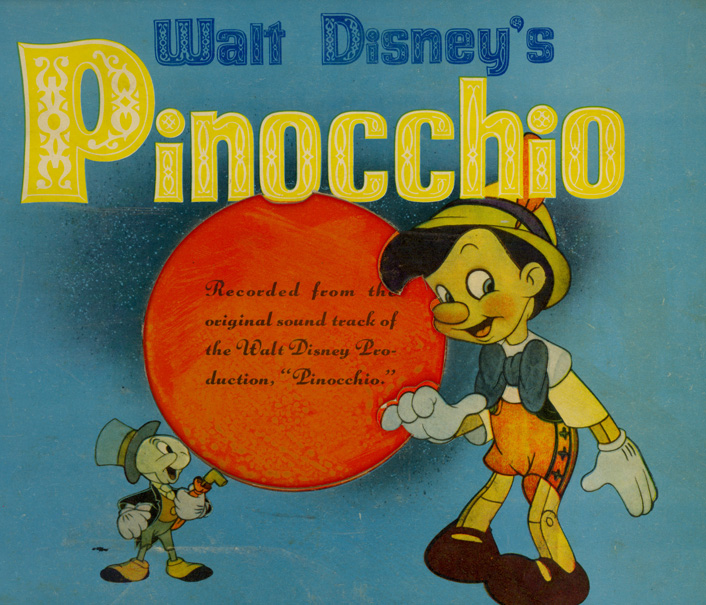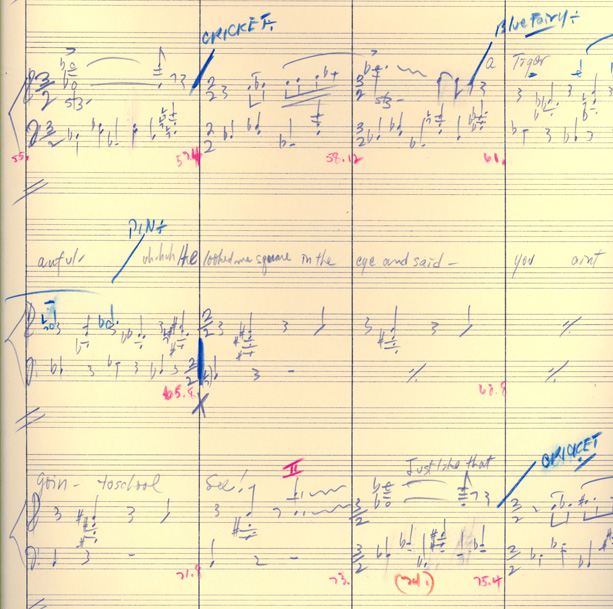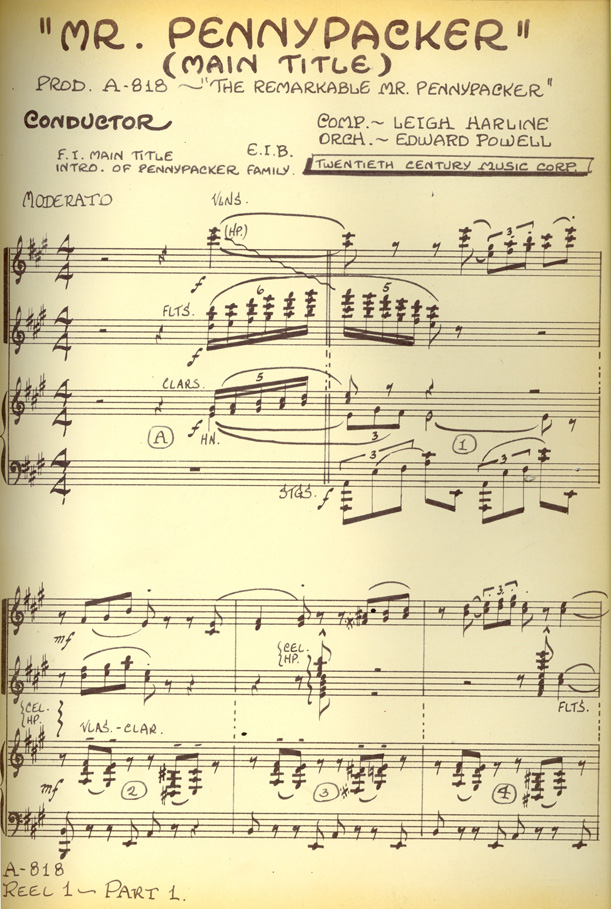Walt Disney Studios is known for their great animated films filled with memorable songs, songs that we remember from our childhood and that last with us through adulthood. They are songs we share with our own children as they grow. We usually remember the names of the actors who brought the characters to life, but not everyone pays attention to the names of those who wrote those songs that stay with us. Leigh Harline, a prolific composer, was one of those people who brought the early Disney characters to life through his songs.
Harline was the son of Swedish immigrants who converted to Mormonism. He was born in Utah on March 26, 1907, and was his parent’s thirteenth child. His family recognized his musical talents early in his life, and he played the organ on Sundays at the Mormon Tabernacle when he was twelve years old. He attended the Latter Day Saints High School and then the University of Utah, where he majored in music and studied piano and organ with J. Spencer Cornwall, the conductor of the Mormon Tabernacle Choir.
In 1928, Harline moved to California where he worked for radio stations in San Francisco and Los Angeles composing music and also serving as an announcer and singer. Around this time, he also married his first wife, Cathryn C. Palmer with whom he had two daughters, Karen and Gretchen. In 1933, Harline caught the attention of Walt Disney and began working at the Disney Studios. His first compositions at Disney consisted of music for animated shorts, in particular the Silly Symphonies. During his tenure at Disney, he wrote the songs for more than 50 animated shorts. Along with Frank Churchill, he composed music for Disney’s first full length animated feature film, Snow White and the Seven Dwarfs. His
best-known work, though, is the music for Pinocchio and the famous song, “When You Wish Upon a Star.” He received an Oscar nomination for best music and score for his work on Snow White and two Academy Awards for Pinocchio.
After leaving Disney in 1941, Harline freelanced with several studios. He wrote music for both films and television. His film credits include: The Pride of the Yankees (1942), The More the Merrier (1943), Road to Utopia (1946), Gentlemen Prefer Blondes (1953), The True Story of Jesse James (1957), The Enemy Below (1957), The Remarkable Mr. Pennypacker (1959), Strange Bedfellows (1965), and many more. He wrote songs for television series such as Wagon Train, Shirley Temple Theater, Daniel Boone, Ben Casey, The Travels of Jaimie McPheeters, and Perry Mason.
The Archives and Rare Books Library holds papers of Leigh Harline in its Urban Studies Collection. Harline’s papers contain many scores written by Harline throughout his career including drafts of the music for Pinocchio and even music that did not make it into the final film. The collection also includes scores for various films and television shows and recordings of Harline’s creations. For a complete list of the scores and recordings available in this collection, consult the OhioLINK EAD Finding Aid. For more information on the Archives and Rare Books Library or for general questions, visit our website at: http://www.libraries.uc.edu/libraries/arb/index.html or call 513-556-1959.



